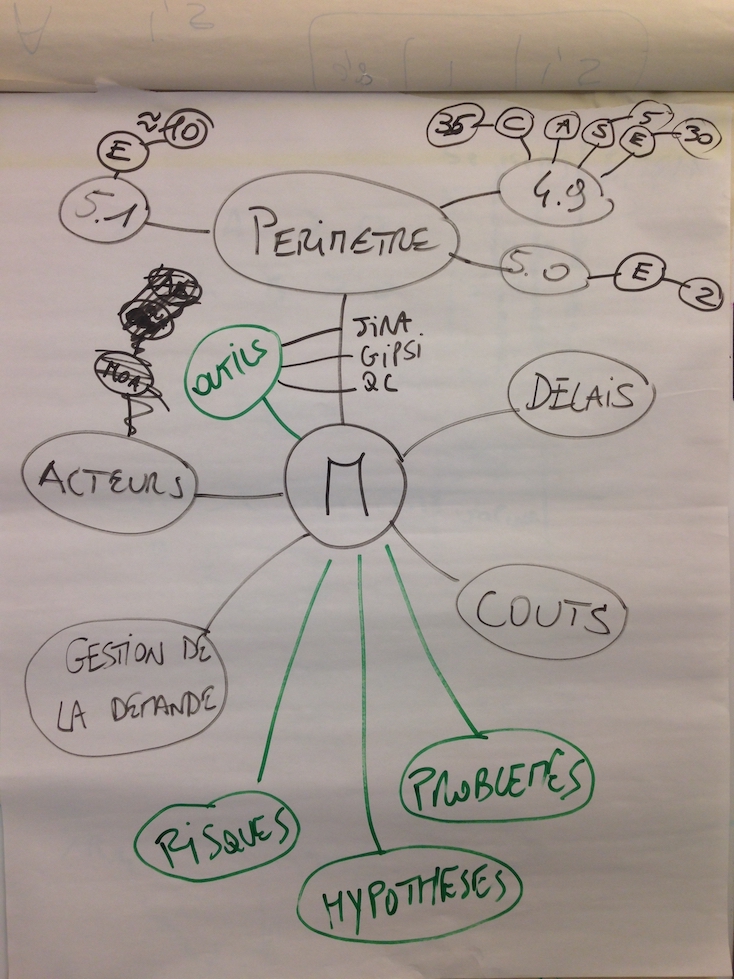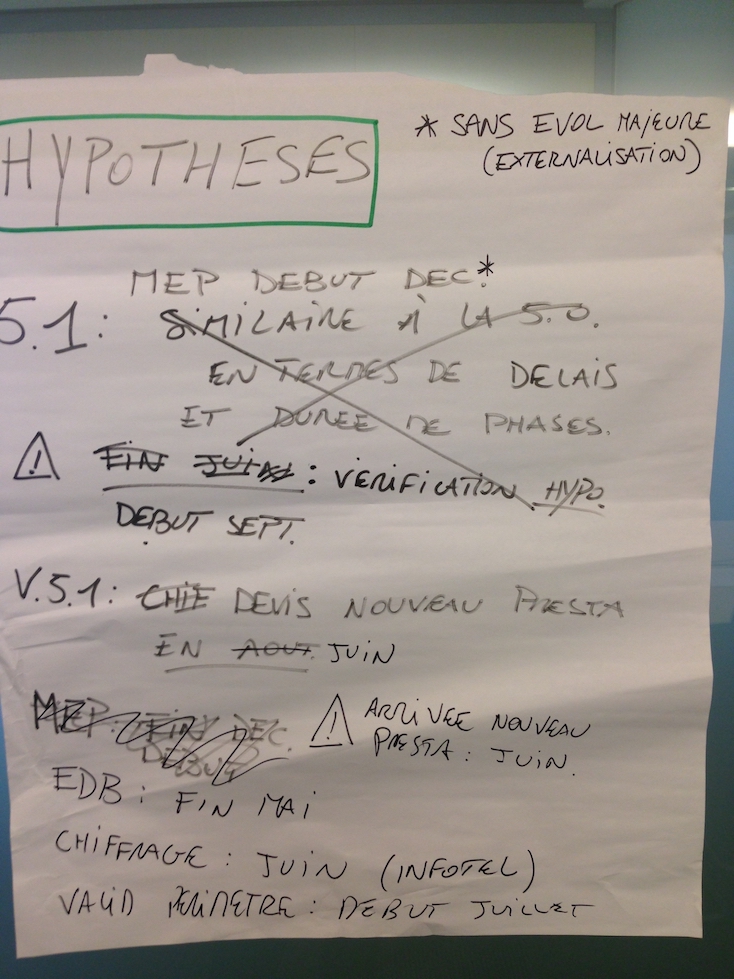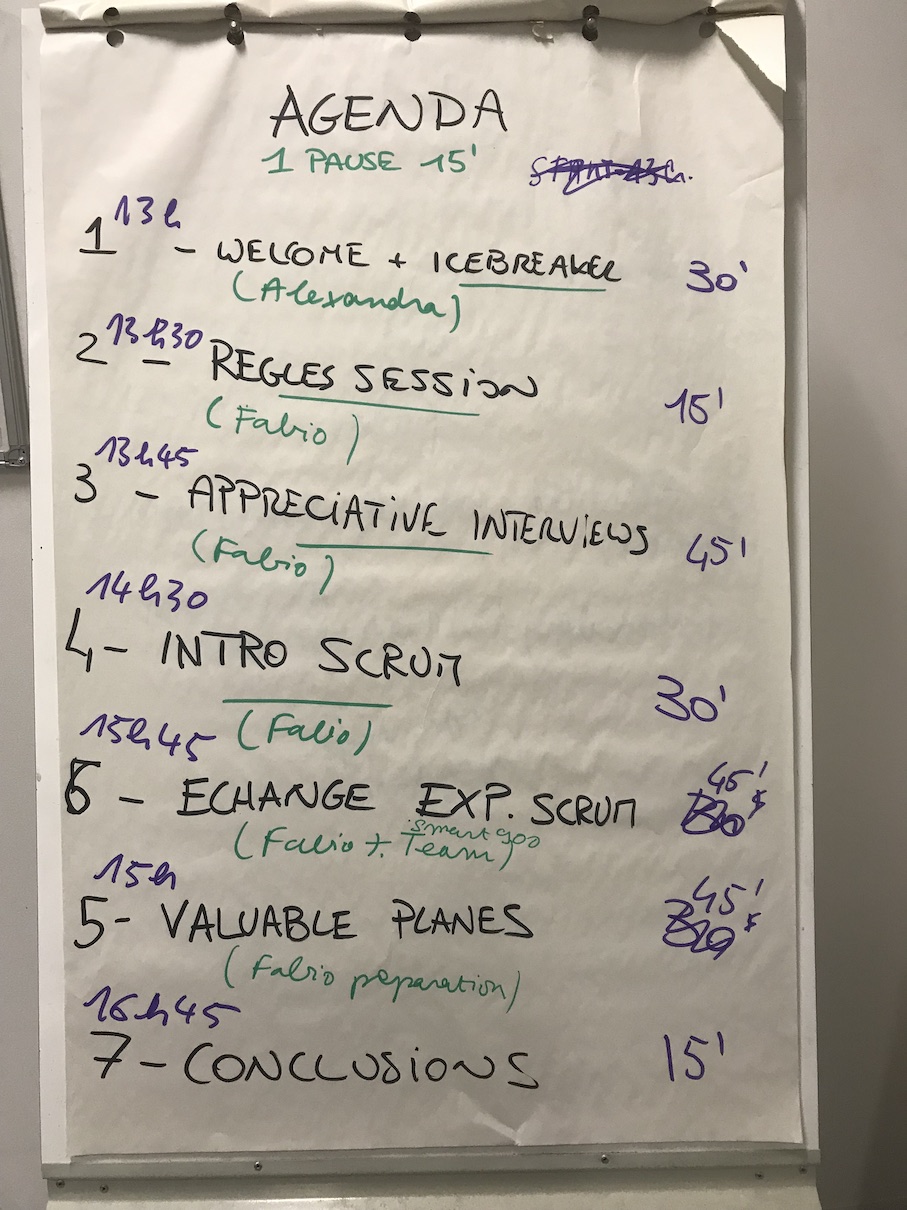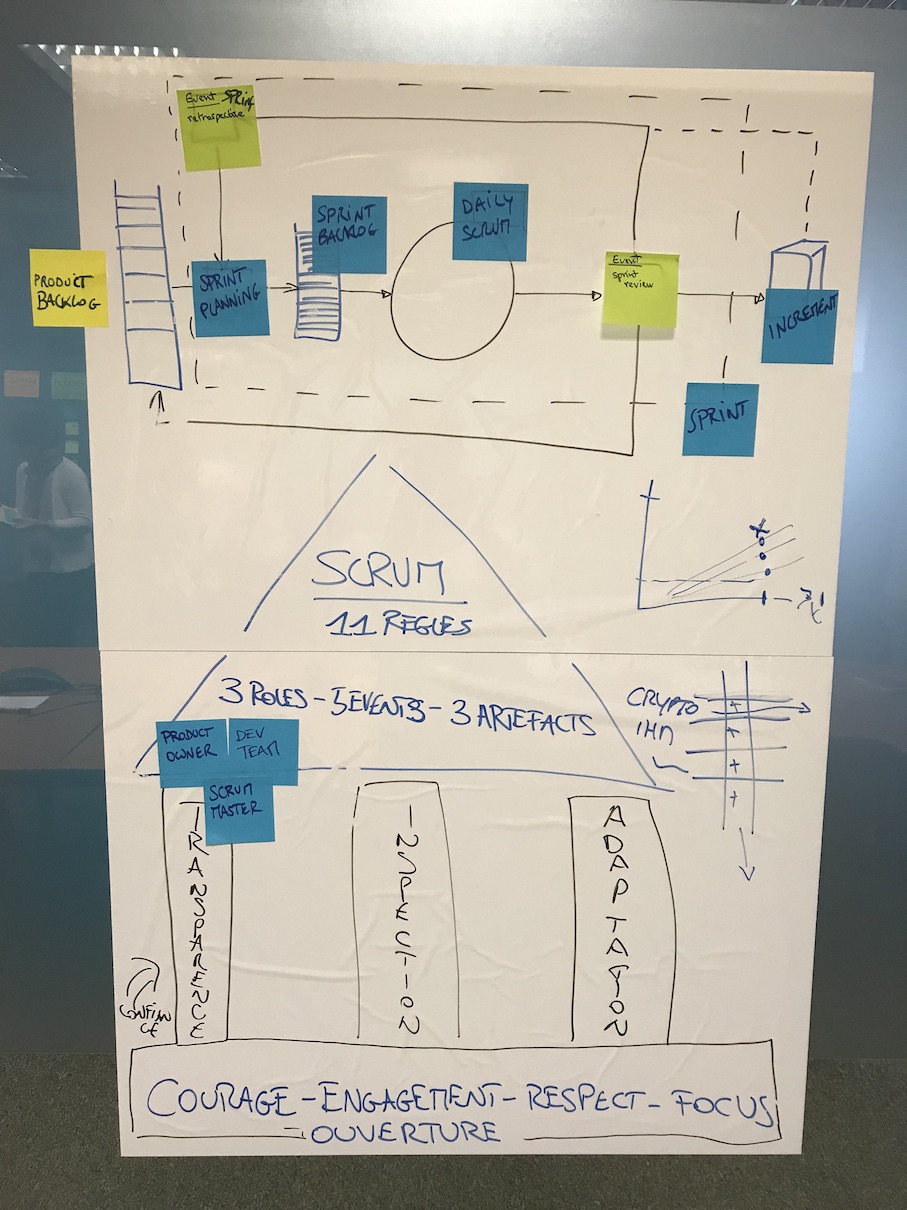Collaboration is key to solve complex problems. I’ve always suffered from the evident lack of collaboration between people. It’s professionally frustrating when you’ve experienced effective teamwork.
🇫🇷 Article en français sur notre site web 🇫🇷
Think back to the best team you worked with, what were the specifics?
How can a Scrum Master can help people, teams and organizations to become highly collaborative?
I noticed that if people have the choice they prefer not to collaborate. Starting from this observation, I look for expedients to make collaboration a necessity and that collaboration comes from understanding. Think about what you’re doing now, why are you doing it, is someone communicating the Vision, the global picture about the Product or Project?
The following are some of the experiences I lived and that helped improve collaboration between people.
Example – Collaborative Writing
In one of my past assignments, as Project Manager, I had to provide a Project Plan. The complexity wasn’t in the content of the document itself, but in the fact that I needed the collaboration of very busy people. 
C ommon practice in the organization was to send out the document by email and wait for the people to fill in their respective chapter. As you can imagine, after one month the topic was still open.
ommon practice in the organization was to send out the document by email and wait for the people to fill in their respective chapter. As you can imagine, after one month the topic was still open.
I decided to organize a collaborative working session. I prepared the meeting room, the facilitation tools and stick some posters at the walls, each of them containing the chapter to discuss.
People entered the meeting room, turned on their laptops. Ignoring that lack of respect for me and my work, I managed to switch focus from laptops to wall posters (very unusual practice in this Company at that time). We set a common goal and ground rules for the working session.
I stayed silent, standing close to one of the empty posters. Then someone started to talk.
The magic started to happen when people talked together, forgot the laptop and were all pointing to the same wall poster. Participants focused on the outcome, not the chapter to fill in. I was stunned by the nonlinear thinking, often a discussion started at one poster and ended at another one to resume where it initially started. Having the physical supports was clearly helping. We realized in two hours what we weren’t able to do in one month, thanks to open collaboration and facilitation. And we had fun.

Example – Scrum Master Collaboration
Something a little harder than filling in a document… principles are the same though.
A Scrum Master isn’t meant to exclusively serve a Scrum Team. Removing obstacles, teaching and promoting Scrum is something that need to be done at organizational level as well. This is something that a Scrum Master alone can hardly do in big organizations.
When I work for a new Customer, I’m always looking for people willing to challenge the status quo. I talk about the magic of collaboration; I offer my Scrum knowledge and experience and I’m asking for help in understanding the organizational culture and in the domains I know I’m weak. We collaborate and learn from each other!
I start proposing activities and look for volunteers that can help me, in a very simple and unformal way. Collaboration between me and internal employees, knowing the actual company culture is very important.
In the company I’m actually helping to create a community open to all the people willing to learn and experiment Scrum. Every month the group self-organized, grew together and fixed their own objectives.
We created an online place where all the events are recorded and all the material created is available to others. We show that what we do has an actual impact on others, that we help each other, that we struggle together. We celebrate small successes together and guess what? We have fun!
Some powerful examples of the result of collaboration:
- The creation of a workshop: “Initiation to Scrum”. The result of the collaboration between employees trained to Professional Scrum and actually using it and myself helping on some of the content and facilitation. It turned out to be a very successful workshop: employees practicing Scrum are much effective and credible with pairs then an external person.
- Brainstorm new products: employees from different domains brainstormed new and innovative products ideas (by combining their knowledge without barriers).
I feel that participants understood that everyone counts, that everything is possible and that it’s by collaborating that we can achieve great results.
Conclusions
Collaboration isn’t natural - as a Scrum Master we need to find ways to make collaboration become a necessity.
Collaboration comes from understanding - as a Scrum Master we can help the Product Owner and the Organization to clarify the why and expected outcomes of a Product and share it widely.
Complexity – nonlinear thinking is a trademark of complexity. Be prepared and comfortable with changes.
Scrum Master as a facilitator – study and prepare to facilitate Scrum Events, meetings, working sessions to stimulate collaboration. My experience is that paper, markers and large wall spaces are the best solution to stimulate collaboration.
Scrum Values – as a Scrum Master, ensure to create a space were people feel safe to speak and experiment. For that, Scrum Values and ground rules (defined by the participants) are an absolute must. Oh, and ensure people have fun… you can do serious work by having fun! The hard part is that people have to forgot that they are in their Company and that are free from all constraints! By experience I can affirm that if such an environment is created, it will be spread along the organization with huge benefits in terms of collaboration.
References
Here are the books I read to learn facilitation, there are many out there, feel free to share yours in the comments!
- Visual Meetings: How Graphics, Sticky Notes and Idea Mapping Can Transform Group Productivity - Sibbet, David
- Visual Teams: Graphic Tools for Commitment, Innovation, and High Performance - Sibbet, David
- Cultures and Organizations: Software of the Mind: Intercultural Cooperation and Its Importance for Survival - Geert Hofstede, Gert Jan Hofstede, Michael Minkov
- Show and Tell: How Everybody Can Make Extraordinary Presentations- Roam, Dan


